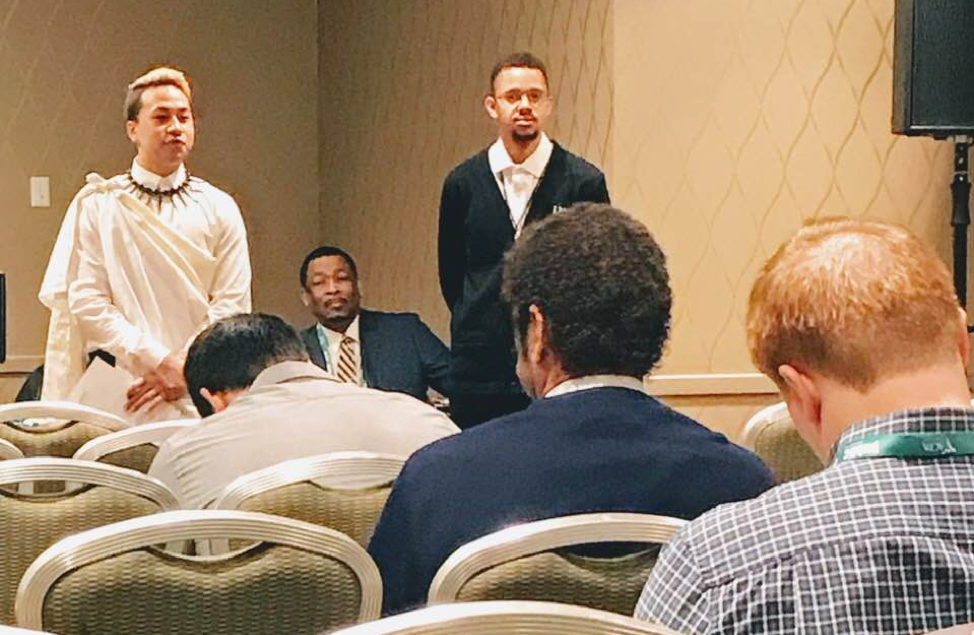Led by a mission to ensure both honesty and inclusivity in all cultural conversations, the Intercultural Facilitator (IF) Program at LMU has quickly become an integral part of the community. Beyond the bluff, the group’s unique student-led style of community building is gaining national recognition from schools across the country as well. In March, two representatives from the IF program, Makeen Yasaar ’19 and Ulaualo Coleman ’19, were invited to the American College Personnel Association’s conference in Boston. Yasaar and Coleman presented to college faculty and staff from around the nation their knowledge on how to create more welcoming college environments for members of all cultures.
The two students led workshops filled with college professionals highlighting the important role student facilitators can play in amplifying unheard communities on campuses. Yasaar, a health and human science major and African American Studies minor, says that his time at LMU has been as much about community as it has been about his classes. “I have been pretty involved in campus communities during my time here,” says Yasaar. “Although I am pre-med, I always try and show up in different spaces, and I have always naturally taken on the role of a facilitator.”
The IF program provides its members with a focused course, giving them tools to navigate cultural dialogues. The result, Yasaar says, is a well-trained group of students ready to effectively lead their peers.
“Everybody has a voice, but sometimes they don’t have the language to bring forth the idea or feeling or even feel comfortable to do so.”
From cultural clubs to Greek life, the facilitators work with students to help them work through inter and cross-organizational issues, as well as help them foster a better understanding of fellow students.
As one of Ethnic and Intercultural Student ServicesIntercultural Advancement programs, the group promotes a myriad of events throughout the year, all of which encourage students to show up and listen during critical conversations. Notable events have included the National Dialogue on Race, as well as, “To Protect and to Serve: a Critical Conversation with the LAPD” presented by the Office of Black Student Services, during Black History Month. For Yasaar and other campus facilitators, events like these are vital in creating radical change.
“Being a facilitator, you have the role of trying to lead a conversation that is normally difficult for people to understand, whether it be race, gender identity or sexuality,” says Yasaar. “Many of the conversations we have are not only focused on the discussion itself but what actions we should as a campus take to make a better future.”
